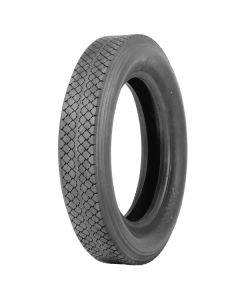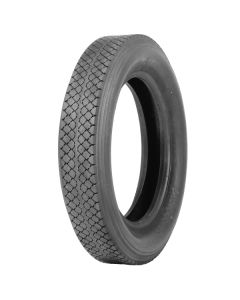Dunlop R1 Tyres

Tony Brooks Frazer Nash Le Mans 1954 on Dunlop Racing R1 Tires
Evolution of Dunlop R1 Tyres
1946 saw the release of the Dunlop Racing R1 tyre. In his well-known book "Touch Wood," Duncan Hamilton lauded the Dunlop R1 tyres, pointing out that they significantly improved the C-Type Jaguar's handling. The Dunlop R1 Racing tire was used on the D-Type Jaguar until 1958, when Dunlop introduced the R5.
At first, the Dunlop Racing R1 was primarily made for 16-inch wheels, which were popular with high-end race car manufacturers like Jaguar, Ferrari, and Frazer Nash. In spite of this, pre-war cars like the Maserati and ERA continued to be competitive in the 1940s and 1950s. As a result, the following pre-war sizes were also made:
Modern R1 tyres are made from high-quality synthetic fabrics, ensuring that your car will handle as it did in the past, but with the added benefit of modern materials and tyre safety standards.

Dunlop Racing R1 Tyres on a Jaguar D-Type
History and Development of Dunlop R1 Tyres
In order to improve the speed and comfort of his son's tricycle trip over cobblestones, veterinary physician John Boyd Dunlop invented the pneumatic tyre in 1888. This tyre was put on a bicycle and won its first race a year after it was patented.
These first tyres were air-filled rubber tubes wrapped around wooden rims and coated with rubberized canvas.
Dunlop emerged as the clear leader in the field, and racers were eager to use their tyres. 1923 saw the first 24-hour Le Mans race won using Dunlop tyres. Dunlop started producing specialised tyres for competition use, first releasing the 5 Stud pattern in 1934, then the R1 in 1946.
These early tyres were simple, weighing around 38 pounds, constructed from cotton fabric and natural rubber. In spite of this, they were very popular, staying in use up to the 1955 introduction of the R3.





